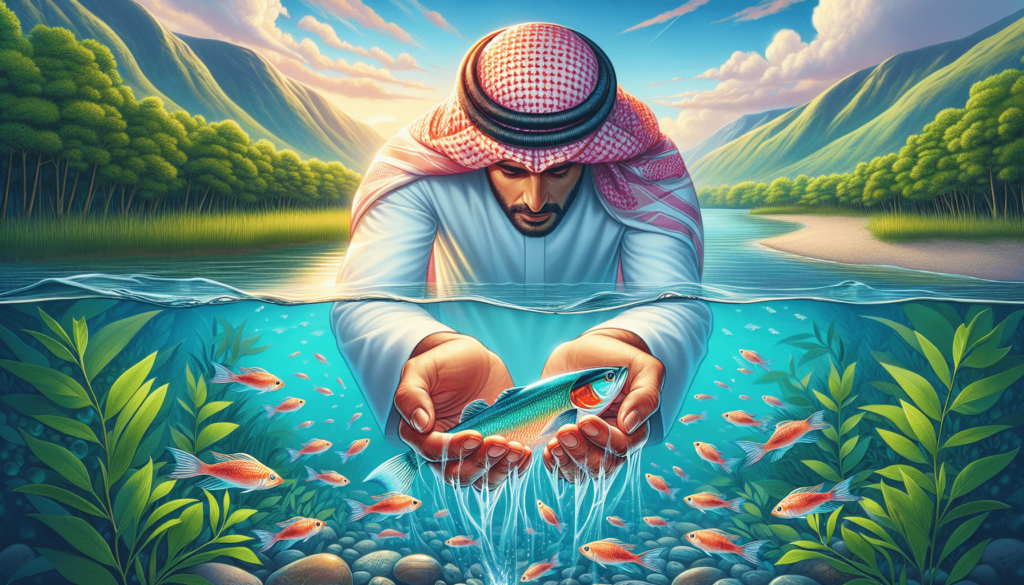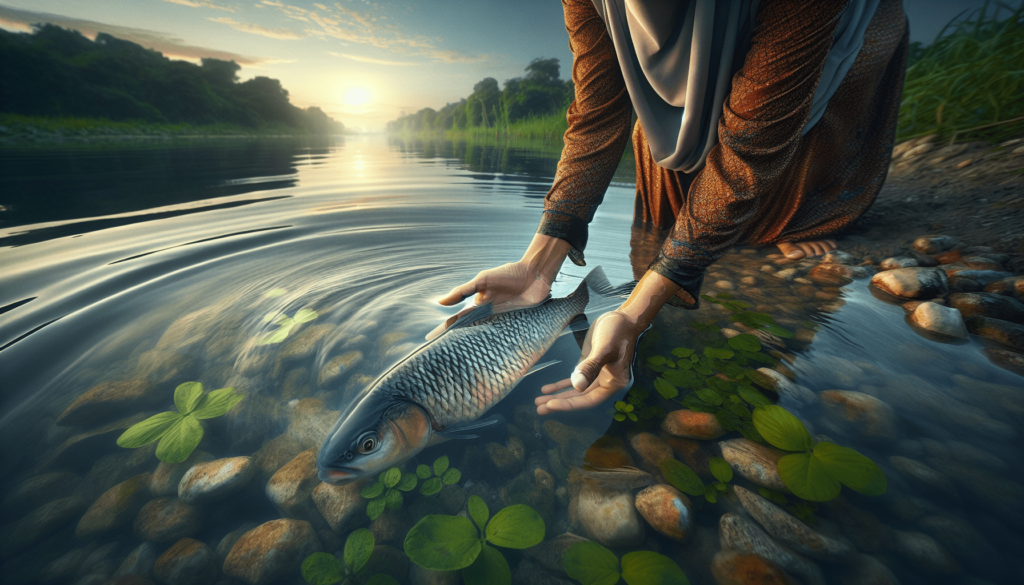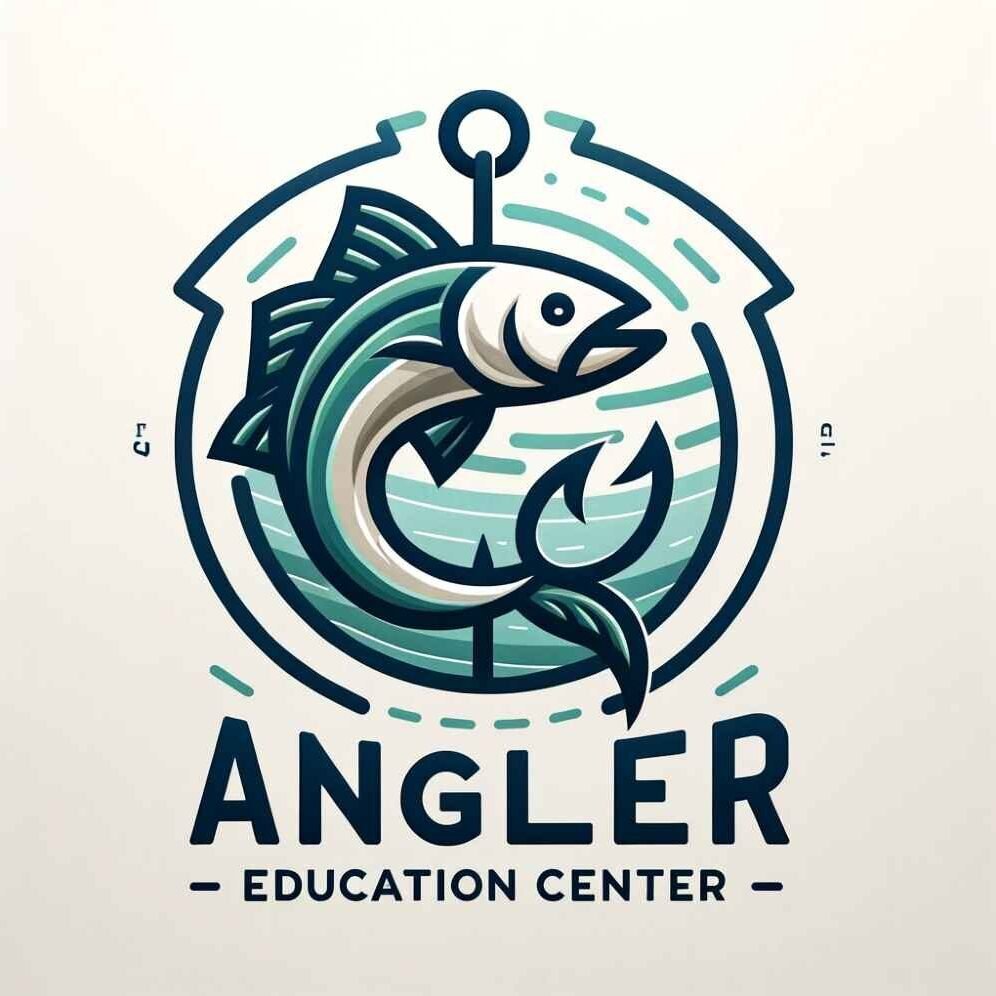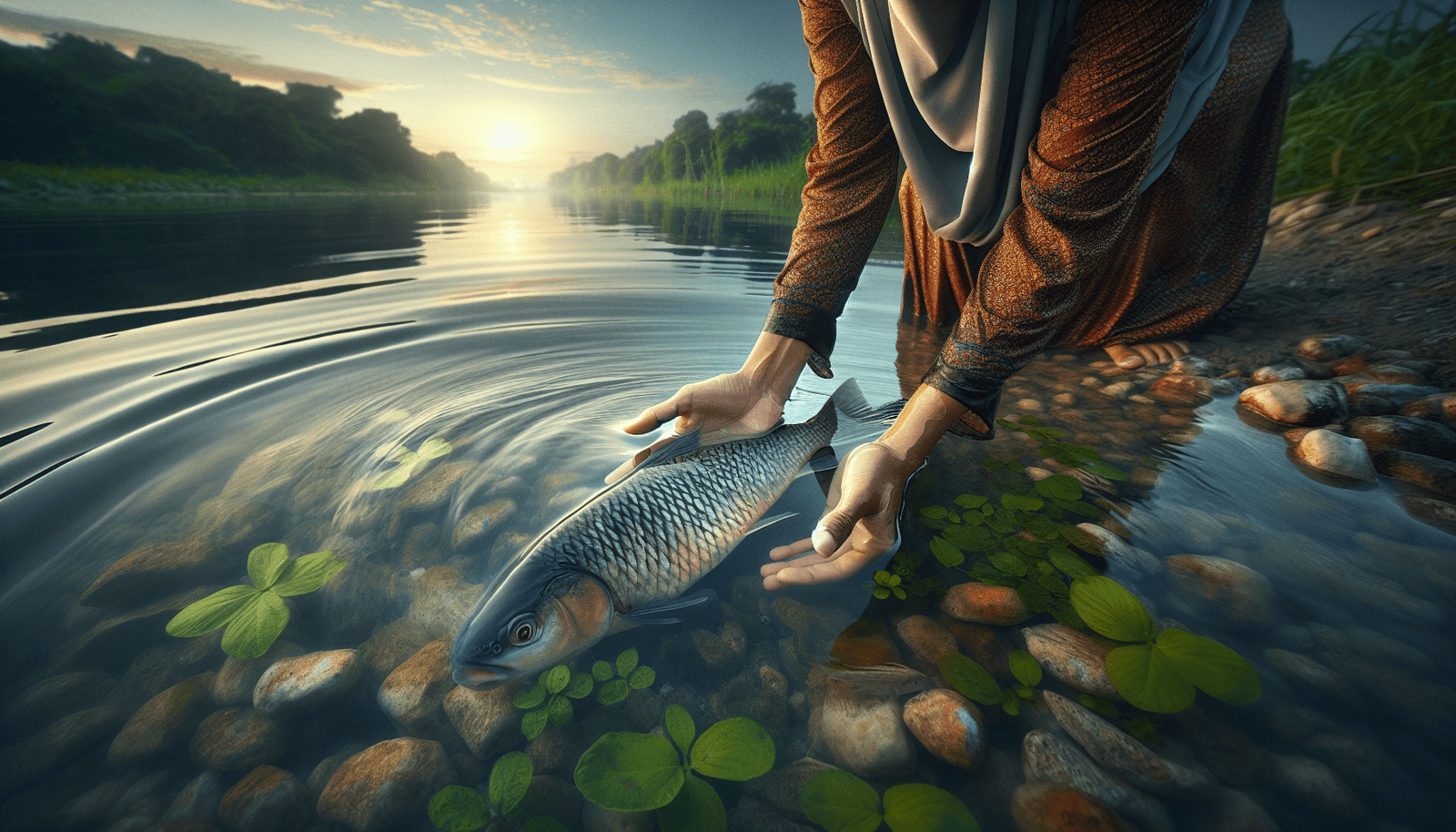In the captivating world of angling, where the thrill of the catch intertwines with the tranquility of nature, understanding the importance of fishing ethics and conservation becomes crucial. Your love for fishing not only brings you closer to the serene beauty of the water bodies but also entrusts you with the responsibility to preserve these aquatic ecosystems for future generations. This reflection focuses on fostering a deep appreciation for the environment while highlighting the sustainable practices that ensure the longevity and health of our beloved marine and freshwater habitats. Embrace the journey towards becoming a conscientious angler, where each cast not only aims for a great catch but also for the conservation of nature’s invaluable resources.

Understanding Fishing Ethics
Definition of fishing ethics
When you think of fishing ethics, it’s important to consider the principles and standards that guide how you interact with aquatic ecosystems and the species that inhabit them. Fishing ethics encompass respect for the environment, fair treatment of fish, and responsible behavior that ensures the resource’s sustainability for future generations. It’s about balancing your enjoyment of fishing with a commitment to conservation and respect for the aquatic life and habitats.
The role of ethics in sustainable fishing
Ethics play a crucial role in sustainable fishing by guiding you towards practices that protect fish populations and their habitats. Sustainable fishing ensures that you can enjoy fishing today, tomorrow, and for years to come, without depleting the resources. By following ethical guidelines, you contribute to the health of aquatic ecosystems, which supports biodiversity and maintains the balance necessary for the ecosystem’s survival.
Comparison between ethical and unethical fishing practices
Ethical fishing practices include following catch limits, using gear that minimizes harm to fish, and avoiding areas where fishing is prohibited. Unethical practices, on the other hand, involve overfishing, using harmful gear, and disregarding regulations designed to protect marine life. While ethical fishing supports the ecosystem’s health and ensures the long-term viability of fish populations, unethical practices threaten the balance of marine ecosystems and endanger the future of fishing.
The Impact of Overfishing
Effects on marine ecosystems
Overfishing has profound and often devastating effects on marine ecosystems. It can lead to the depletion of key species, which disrupts the food chain and can cause the collapse of entire ecosystems. This imbalance can lead to the loss of biodiversity and negatively affect the health of the marine environment, making it less resilient to environmental changes.
Consequences for biodiversity
Biodiversity in marine ecosystems is threatened by overfishing, as it reduces the variety of species and can lead to the extinction of some. This loss of biodiversity not only affects the marine environment but also has implications for humans, who rely on these ecosystems for food, economic activities, and cultural values.
Long-term implications for human food resources
Overfishing’s long-term impact extends to human food resources, as many communities worldwide depend on fish as a primary source of protein. The depletion of fish stocks can lead to food scarcity and negatively impact people’s livelihoods, particularly in coastal communities where fishing is a significant economic activity. Ensuring sustainable fishing practices is crucial for maintaining these vital food resources.
Establishing marine protected areas
One effective conservation strategy is the establishment of marine protected areas (MPAs), where fishing activities are restricted or prohibited. MPAs help protect marine ecosystems, allowing fish populations to recover and biodiversity to flourish. These areas serve as refuges for marine life and contribute to the health of surrounding waters by providing spill-over benefits.
Implementation of catch and release programs
Catch and release programs encourage you to return caught fish back to the water, helping to sustain fish populations. These programs focus on species that are overfished or susceptible to population declines, promoting the recovery of these species while still allowing you to enjoy the sport of fishing.
Adoption of sustainable fishing technologies
The adoption of sustainable fishing technologies, such as more selective gear that reduces by-catch and habitat destruction, plays a crucial role in conservation efforts. These technologies help minimize the impact of fishing on the environment, ensuring that fish populations and their habitats are protected for the future.
Regulatory Frameworks and Policies
International regulations for fishing
International regulations for fishing aim to manage fish stocks on a global scale and ensure their sustainability. These regulations, established by organizations like the United Nations, address issues such as illegal, unreported, and unregulated (IUU) fishing and overfishing. They foster cooperation among countries to protect shared resources and marine biodiversity.
National and local fishing laws
National and local fishing laws are designed to manage fish populations within specific jurisdictions. These laws may include limits on catch sizes, gear restrictions, and closed seasons or areas to protect spawning fish. By adhering to these laws, you contribute to the conservation of fish populations and the health of aquatic ecosystems.
The role of fisheries management in conservation
Fisheries management plays a vital role in conservation by implementing and enforcing regulations that ensure the sustainable use of fish resources. It involves assessing fish populations, setting quotas, and monitoring fishing activities. Effective fisheries management can help restore overfished stocks, protect habitats, and ensure that fishing practices are sustainable.

The Role of Recreational Fishers in Conservation
Adopting responsible fishing techniques
As a recreational fisher, adopting responsible fishing techniques is crucial for conservation. This includes practicing catch and release, using appropriate gear, and following local regulations. By fishing responsibly, you help preserve fish populations and their habitats for future generations.
Participation in habitat restoration projects
You can also contribute to conservation by participating in habitat restoration projects. These projects aim to repair damaged ecosystems, such as rebuilding coral reefs or restoring wetlands, which are vital for the health of marine life. Volunteer efforts in these projects underscore the importance of community involvement in conservation.
Reporting illegal and unethical fishing activities
Reporting illegal and unethical fishing activities is another way you can help protect marine resources. By being vigilant and informing authorities of violations, you support the enforcement of regulations and contribute to the efforts to combat overfishing and habitat destruction.
Educating the Public on Fishing Ethics
Community outreach programs
Community outreach programs play a vital role in educating the public on fishing ethics. These programs can include workshops, seminars, and hands-on experiences that teach sustainable fishing practices and the importance of conservation. By raising awareness, these programs can inspire individuals to adopt more responsible behaviors towards marine environments.
The importance of public awareness campaigns
Public awareness campaigns are crucial for highlighting the importance of ethical fishing and conservation. Through various media, such campaigns can inform a broad audience about the impact of overfishing, the benefits of sustainable practices, and how individuals can contribute to conservation efforts. Increasing public knowledge and concern can lead to greater support for regulatory and voluntary conservation measures.
Role of schools and educational institutions
Schools and educational institutions have a significant role in teaching the next generation about fishing ethics and conservation. Through curricula that include environmental science and sustainability topics, students can learn about the importance of preserving marine ecosystems and how they can contribute to conservation efforts. Educating young people can ensure a continuing commitment to sustainable fishing practices.
Technological Advances in Sustainable Fishing
Innovations in eco-friendly gear
Technological innovations in eco-friendly gear aim to reduce the environmental impact of fishing. This includes the development of more selective fishing gear that targets specific species, thereby reducing by-catch of non-target species and minimizing damage to marine habitats. These advancements contribute to more sustainable fishing practices by lessening the ecological footprint of fishing activities.
Electronic monitoring systems for catch reporting
Electronic monitoring systems for catch reporting are becoming increasingly important in the management and conservation of fish resources. These systems allow for accurate and real-time data collection on catches, helping to ensure compliance with quotas and regulations. This technology supports sustainable fishing by providing the data needed for effective fisheries management.
Advances in fish farming and aquaculture
Advances in fish farming and aquaculture offer potential solutions to meet the global demand for fish while reducing pressure on wild fish populations. Innovations in this sector aim to improve the sustainability of aquaculture practices, such as reducing the use of wild-caught fish in feeds and implementing systems that minimize environmental impact. Sustainable aquaculture can play a significant role in conserving marine biodiversity while providing a reliable source of fish.
Cultural Significance and Ethical Fishing
Preserving traditional fishing methods
Preserving traditional fishing methods is essential for maintaining cultural heritage and ensuring sustainable fishing practices. Many traditional techniques are inherently sustainable, as they have evolved to coexist with and respect marine ecosystems over generations. Recognizing and valuing these methods can contribute to conservation efforts and the preservation of cultural identities.
Indigenous rights and sustainable practices
Indigenous rights are closely linked to sustainable fishing practices, as many indigenous communities depend on fishing for their sustenance, culture, and livelihoods. Respecting indigenous rights and incorporating traditional knowledge into conservation strategies can enhance the sustainability of fishing practices and protect biodiversity.
Balancing modernization with cultural heritage
Balancing modernization with cultural heritage involves integrating traditional and contemporary fishing practices in a way that respects cultural values while promoting sustainability. This balance ensures that advancements in fishing technology and management do not come at the expense of cultural traditions and ecological integrity. It requires a collaborative approach that values both heritage and innovation in pursuing sustainable fishing.
Economic Aspects of Ethical Fishing
Impact on local economies
Ethical fishing practices can have a positive impact on local economies by ensuring the long-term viability of fish resources. Sustainable fishing supports the livelihoods of communities that depend on fishing, by maintaining healthy fish populations and ecosystems. It can also promote tourism and recreational fishing activities, providing additional economic benefits.
Sustainable fishing as a competitive advantage
Adopting sustainable fishing practices can provide a competitive advantage in the global market. Consumers are increasingly seeking out sustainably sourced seafood, and certification programs for sustainable fisheries can help differentiate products. This can lead to higher prices and increased market access for sustainably caught fish, benefiting both fishers and the environment.
Financial incentives for ethical practices
Financial incentives, such as subsidies for sustainable fishing gear or rewards for adhering to sustainability standards, can encourage ethical fishing practices. These incentives can help offset the costs associated with adopting more sustainable practices and promote the transition towards sustainability in the fishing industry. By supporting ethical practices through financial means, governments and organizations can contribute to the conservation of marine resources.
Challenges and Future Directions
Addressing climate change impacts on fisheries
Climate change poses significant challenges to fisheries and marine ecosystems, affecting fish distributions, spawning times, and the health of marine habitats. Addressing these impacts requires adaptive management strategies that consider the changing environment and work to mitigate the effects of climate change on fish resources. This will involve research, monitoring, and the implementation of flexible management approaches.
Overcoming resistance to regulation and change
Overcoming resistance to regulation and change in the fishing industry is a critical challenge. This requires engaging with stakeholders, including fishers, communities, and industry representatives, to build consensus on the need for sustainable practices. Education and outreach, along with incentives for adopting sustainable practices, can help overcome resistance and foster a culture of conservation.
Innovations and the future of sustainable fishing
The future of sustainable fishing will rely heavily on innovations in technology, management practices, and policy. Advances in eco-friendly gear, fish farming, and monitoring systems will play a crucial role in reducing the environmental impact of fishing. Collaborative management approaches that involve all stakeholders, along with strong regulatory frameworks, will be essential in ensuring the continued sustainability of fish resources. As you look to the future, embracing these innovations and working together for conservation can ensure that fishing remains a viable and sustainable activity for generations to come.


